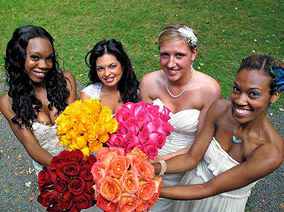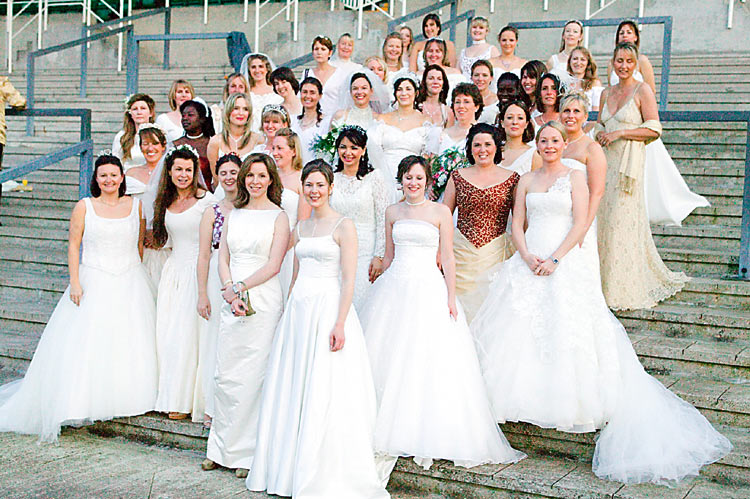Monthly Archives: August 2012
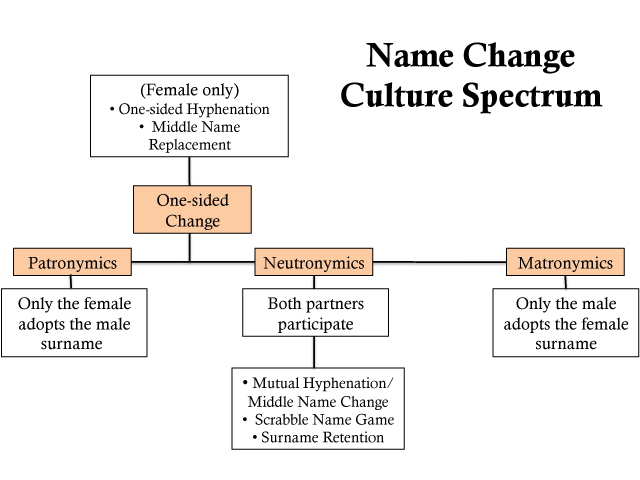

How Well Balanced Is Your Name Change Decision?
I created this ‘Name Change Cultural Spectrum’ for a lecture I gave at Tufts University this spring. I wanted people to understand where their decisions stand in the broader context of equality. For example, a lot of women who retain their surname but also incorporate their new spouse’s name through hyphenation will defend their decision as being progressive or feminist or seemingly more about equality. If you look on the spectrum, that one-sided name change is not as based on equality as we might like to think, especially since men typically do not join women in this one-sided hyphenation.
Also to show that existing name change culture does not encourage equality, I had to invent the term Neutronymics. Neutronymics is the adoption of a new name or combination of names created using the names of married individuals or the retention of separate surnames. It is meant to be a solution to those wishing to participate in neither patronymics nor matronymics and to increase name equality. Mutual hyphenation, the Scrabble Name Game and Surname Retention are all options people are aware of, but had never been grouped before or labeled. Labeling it gives it legitimacy and really puts into perspective the other options that favor one sex over another.
So when it comes time for you to get married and you’re not sure if you’re making the right decision that honors yourself and/or your partner – take a look at the Name Change Culture Spectrum. See where your decision places on the map and you’ll get a better sense as to whether you are helping to buck the dominating patriarchy, are alone in your name change decisions or are making a healthy decision that really promotes equality in your relationship and teaches women to value their name too. And if you’re a lady getting married, don’t forget to make the groom put in the same type of name change consideration you are putting in yourself!
 Why Women Change Their Last Names After Marriage
Why Women Change Their Last Names After Marriage
Wedding Invitation Name Etiquette
The Lucy Stone League: Crusaders for more name equality!
Dear ReadyMade Magazine, This Is How Not to Write A Love Letter. <3 The FB
I may not be a literary genius like Mark Twain, a.k.a Samuel Clemens (hello bad blogger grammar),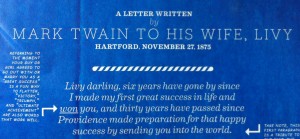 but I do know a chauvinistic comment when I see one. I’ll excuse Twain from using sexist language that was typical of his day because feminism had yet to take root, but I can’t excuse ReadyMade magazine for taking a romantic cue from the humorist in the present day. Last time I checked, women were not objects to be won (physically, emotionally or figuratively). I thought we figured this out decades ago?
but I do know a chauvinistic comment when I see one. I’ll excuse Twain from using sexist language that was typical of his day because feminism had yet to take root, but I can’t excuse ReadyMade magazine for taking a romantic cue from the humorist in the present day. Last time I checked, women were not objects to be won (physically, emotionally or figuratively). I thought we figured this out decades ago?
Twain, in a love note to his wife in 1875 declared, “…I made my first great success in life and won you…” ReadyMade magazine highlights and interprets the ‘won’ as good framework for writing a love letter with, “…is a fun way to flatter. ‘Victory,’ ‘triumph,’ and ‘ultimate achievement’ are also words that work well.” Using synonyms does not bypass the blatant chauvinism in the statement. And there’s no way to put a positive, non-sexist reinterpretation on it.
There are a hundred better ways to say that you’ve never been happier since the day you met the love of your life and commited to him or her. Twain may have said a lot of wise and credible things, but giving credence to a statement that is clearly obsolete in our modern times is not healthy for any woman or relationship. ReadyMade may make a lot of things well, but perhaps it should stick to making stuff out of wine corks and light bulbs. Otherwise it should put a cork in it and leave love letters to fortune cookies and dirty limericks.
The Mark Twain quotes and ReadyMade Love Letter suggestions first appeared in the August/September Issue of 2010. Even though it is a year later, I still think it is important to highlight mistakes that perpetuate sexist, obsolete language.
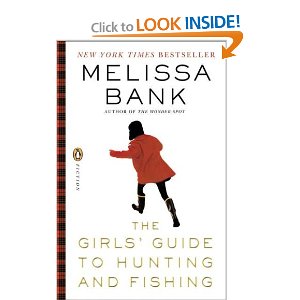

FB Book Review: The Girls’ Guide to Hunting and Fishing (Fiction)
![]() The Girls’ Guide to Hunting and Fishing by Melissa Bank: As an outdoorsy gal,
The Girls’ Guide to Hunting and Fishing by Melissa Bank: As an outdoorsy gal,  I picked this book up because of its awesome title, only to be mildly disappointed that hunting and fishing only referred to men and dating. Readers follow the life of Jane Rosenthal who is pessimistically and somewhat passionately needy when it comes to her own self esteem, and not surprisingly with men and relationships. Her love life involves a series of unhealthy relationships that she seems to understand are a function of her own personal issues but does little to make a clean break before any damage is done. At a breaking point on her own self worth, she turns to a self help book in order to find love. The book’s most redeeming moment is when Jane finally realizes that the book’s advice to act like a hard-to-get, traditionally feminine, demure damsel is probably the worst advice. The book seems to be hailed as an accurate depiction of women’s dating troubles, but I would have found the book more salient had it focused on problem solving stories and less on the problems. (Subject: Fiction, Love, Boyfriends, Relationships, Self Esteem)
I picked this book up because of its awesome title, only to be mildly disappointed that hunting and fishing only referred to men and dating. Readers follow the life of Jane Rosenthal who is pessimistically and somewhat passionately needy when it comes to her own self esteem, and not surprisingly with men and relationships. Her love life involves a series of unhealthy relationships that she seems to understand are a function of her own personal issues but does little to make a clean break before any damage is done. At a breaking point on her own self worth, she turns to a self help book in order to find love. The book’s most redeeming moment is when Jane finally realizes that the book’s advice to act like a hard-to-get, traditionally feminine, demure damsel is probably the worst advice. The book seems to be hailed as an accurate depiction of women’s dating troubles, but I would have found the book more salient had it focused on problem solving stories and less on the problems. (Subject: Fiction, Love, Boyfriends, Relationships, Self Esteem)
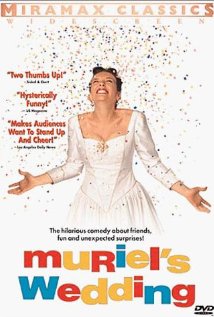

FB Movie Review: Muriel’s Wedding
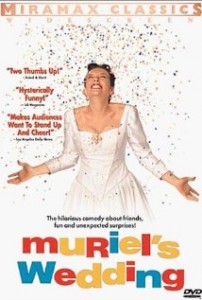
![]() Muriel’s Wedding (1994): Yet another movie that revolves around Abba (someone please explain the Abba/Wedding phenomenon) but set in Australia. This movie is what one would expect the adult follow up to Welcome to the Dollhouse would be like. Muriel is awkward, talentless, painfully unfashionable and dateless. As the movie unfolds it becomes apparent that Muriel’s obsession with weddings and marriage stems from being surrounded by an unsupportive network of friends and family. Until she breaks away from her hometown via theft, does her life begin to change for the better when she meets Rhonda Epinstock. As Muriel pulls her life together she begins to relinquish her attachment to Abba and weddings, though when things sour it all goes terribly wrong. In the end she learns that marriage and a wedding is not the solution to her problems nor will give her value. Despite the painfulness and awkwardness of its characters and storyline, there are some really good lessons about our obsession with weddings and marriage worth paying attention to. Subject: Wedding, Marriage, Abba. Director P.J. Hogan.
Muriel’s Wedding (1994): Yet another movie that revolves around Abba (someone please explain the Abba/Wedding phenomenon) but set in Australia. This movie is what one would expect the adult follow up to Welcome to the Dollhouse would be like. Muriel is awkward, talentless, painfully unfashionable and dateless. As the movie unfolds it becomes apparent that Muriel’s obsession with weddings and marriage stems from being surrounded by an unsupportive network of friends and family. Until she breaks away from her hometown via theft, does her life begin to change for the better when she meets Rhonda Epinstock. As Muriel pulls her life together she begins to relinquish her attachment to Abba and weddings, though when things sour it all goes terribly wrong. In the end she learns that marriage and a wedding is not the solution to her problems nor will give her value. Despite the painfulness and awkwardness of its characters and storyline, there are some really good lessons about our obsession with weddings and marriage worth paying attention to. Subject: Wedding, Marriage, Abba. Director P.J. Hogan.
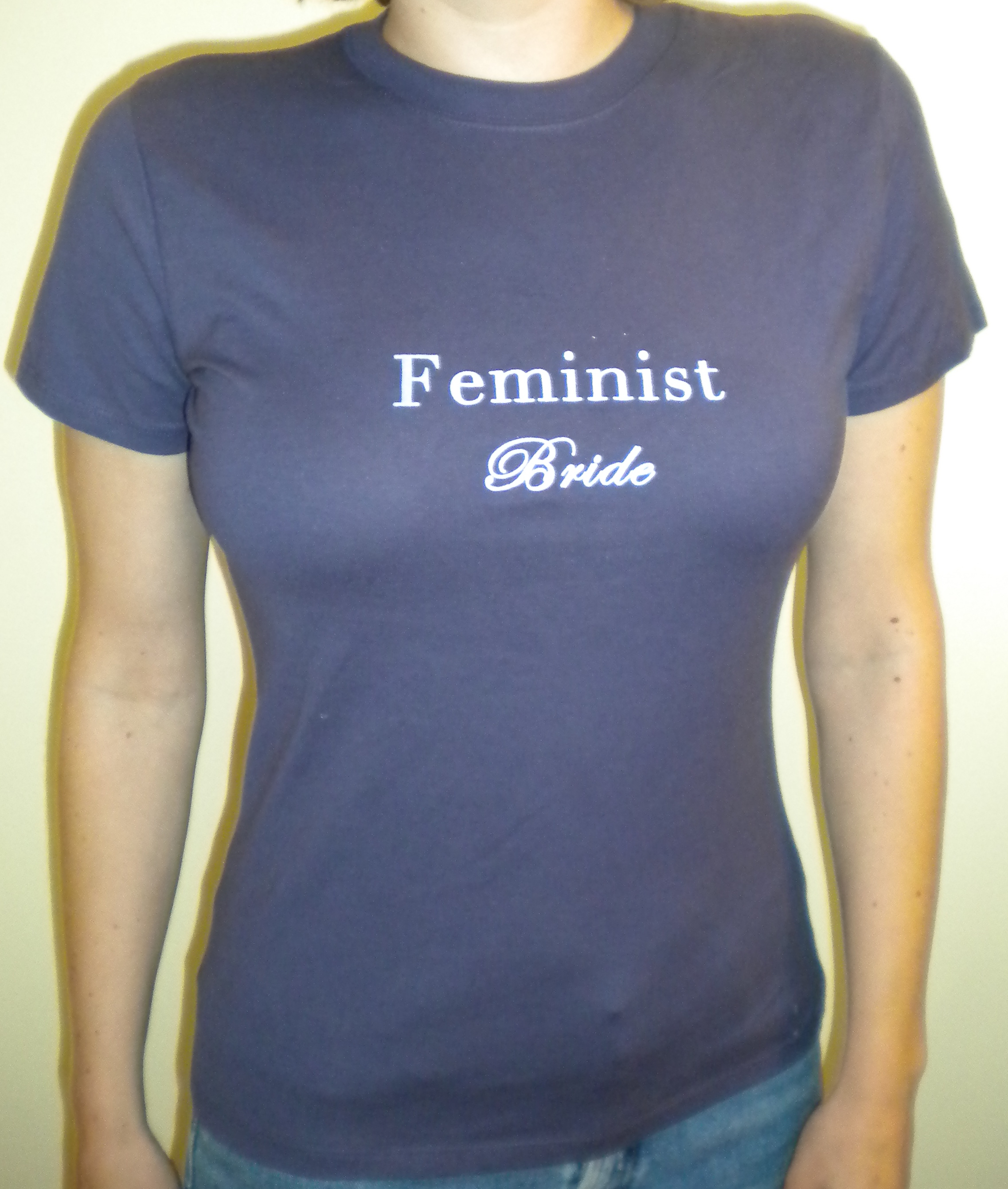

New Feminist Bride T-Shirts!
Represent yourself and the ne0-traditional, feminist bride that you are (or a friend you may know) 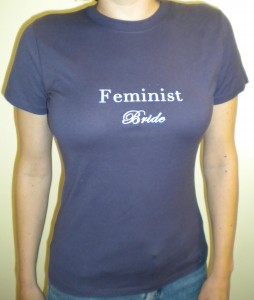 with a Feminist Bride t-shirt! Wear it on your bachelorette party, to the Post Office, a feminist rally, to your Jack n’ Jill shower, maybe to go get coffee, who knows. I say wear it all the time.
with a Feminist Bride t-shirt! Wear it on your bachelorette party, to the Post Office, a feminist rally, to your Jack n’ Jill shower, maybe to go get coffee, who knows. I say wear it all the time.
Current colors are cerulean blue, pink, purple and black! Don’t see a size or a color you like, just ask! Custom orders can be made too.
I hand printed these in a screen print shop, so there’s feminist sweat that went into them. Proceeds go to supporting website costs. Your support is much appreciated (and needed…)
To make your purchase click here.
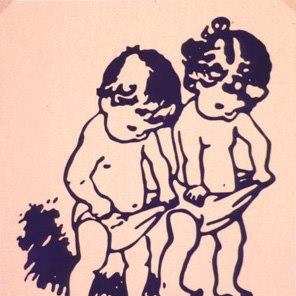

Are You Sexist? Take The Test
“Women — you can’t live with them, and you can’t live without them.” 
‘This male quip captures something essential about the face of sexism: an ambivalence, or doubled-edged way of thinking, in which women are sometimes treated with contempt and sometimes adored.’
‘How can adoration qualify as sexism? To answer this question, you are invited to take the Ambivalent Sexism Inventory and explore the dual nature of prejudice toward women. The inventory takes roughly 5 minutes to complete, and afterward you can compare your level of sexism with the scores received by people from around the world’
The following is an excerpt from UnderstandingPrejudice.org. The test is for both men and women. Take the test by clicking the link and following directions to see how you score. UnderstandingPrejudice.org: Ambivalent Sexism Inventory.
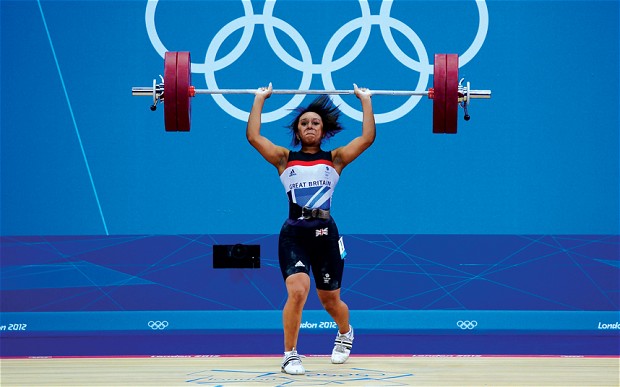

Olympic Athlete Fights Sexism with Witt, Words and The Web
British Olympic weightlifter Zoe Smith, 18 was in a documentary on BBC, 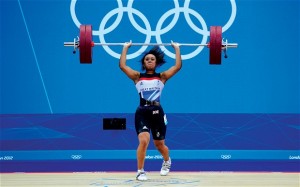 “Girl Power – Going For Gold.” Some Twitter commentators said Smith was more or less too masculine, should be more feminine in order to attract a man and that she should ‘go make her boyfriend a sandwich.’ Smith fired back on her blog, confronting a particular commentator (who apparently couldn’t handle the fight because the username is now disabled) and is being hailed for her smart and strong retort.
“Girl Power – Going For Gold.” Some Twitter commentators said Smith was more or less too masculine, should be more feminine in order to attract a man and that she should ‘go make her boyfriend a sandwich.’ Smith fired back on her blog, confronting a particular commentator (who apparently couldn’t handle the fight because the username is now disabled) and is being hailed for her smart and strong retort.
“We, as any women with an ounce of self-confidence would, prefer our men to be confident enough in themselves to not feel emasculated by the fact that we aren’t weak and feeble.”
The negative comments are a good example of hostile sexism. Hostile sexism is the negative treatment of women because they do not fulfill traditional, feminine gender roles (which is benevolent sexism and this keeps women subservient in traditional feminine gender roles). How to connect this to marriage? Well, marriage is a typical path for women to fulfill traditional feminine gender roles. Exchanges like in this article are an example of how those roles effect other areas women are engaged in, as evidenced in the sexual comments directed at Smith. It’s not necessarily sexism in the Olympics. The strong presence of women in the Olympics encourages lingering sexism in our communities to surface. It is an unfortunate event, but on a positive note it does highlight we, indeed, do not live in a post-feminist society and tells us we still have important work to do.
Women’s weightlifting was introduced at the 2000 Olympics in Sydney. Smith went on to break the British record in the 58kg competition by lifting twice her weight (211kg), but finished 12th out of 19 overall.
To read the article from Feministing.com and many more about sexism in the Olympics click here.

